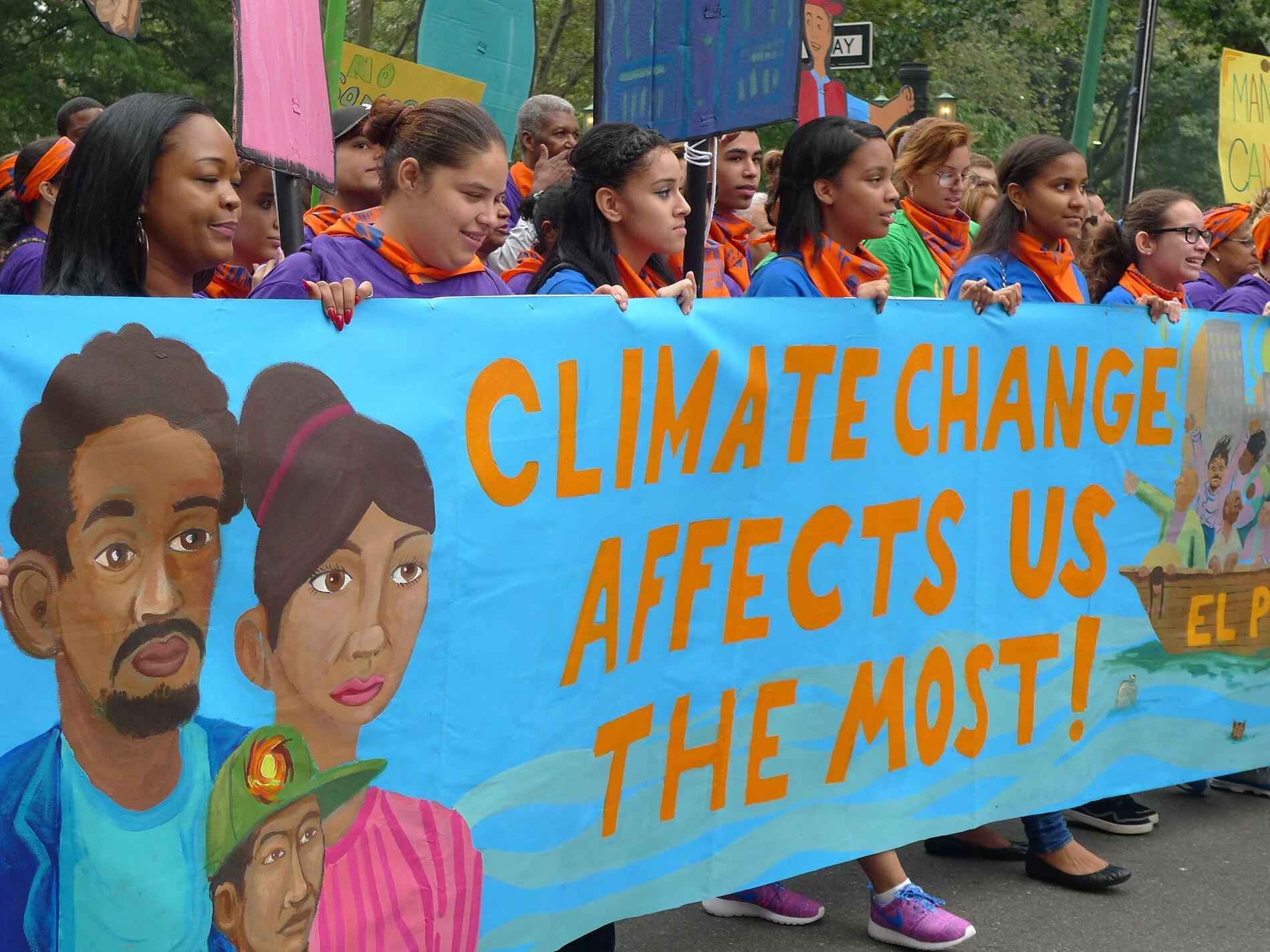Black History Month ordinarily evokes a specific set of images, stories, events, and figures—but there’s no reason why every aspect of American history can’t be turned into its own reflection of Black history. In an era dominated by revisionist history, Black History Month prompts us to use that revision for good. Reconceptualizing the trajectory of events in what is traditionally called the “environmental movement” is one place to start.
Read MoreOver the fall semester, Sam Brecker interned at UNFCC. Even though his internship was remote, Sam gained valuable experience helping with the lead-up to COP28 in Dubai and contributing to the 2024 Earth Information Day Summary Report.
Read MoreClimate change intensifies extreme weather events like hurricanes, floods, and heatwaves. Black communities, particularly those in low-income areas, are more vulnerable due to inadequate infrastructure, limited resources, and historical disinvestment. But the story of Black Americans and the climate crisis is not solely a story of despair. It is important that we in the climate justice movement recognize the contributions of Black Americans to the climate justice movement, and I will recognize a few in detail.
Read MoreMy internship with 10 Green Gigawatts for Ethiopia, or 10G, was about understanding the on-ground energy situation in Ethiopia in the short span of two months. I was tasked with strategizing the expansion of 10G’s solar deployment services and forming new global partnerships.
Read MoreThis past summer, I participated in an eight-week internship with the Commission for the Conservation of Antarctic Marine Living Resources (CCAMLR), which is an international environmental organization consisting of 27 member states and 10 acceding states based in Hobart, Tasmania, Australia. During my internship, I mainly worked with the Fisheries Monitoring and Compliance team on a research project about krill fisheries and designing a potential catch documentation scheme.
Read More




